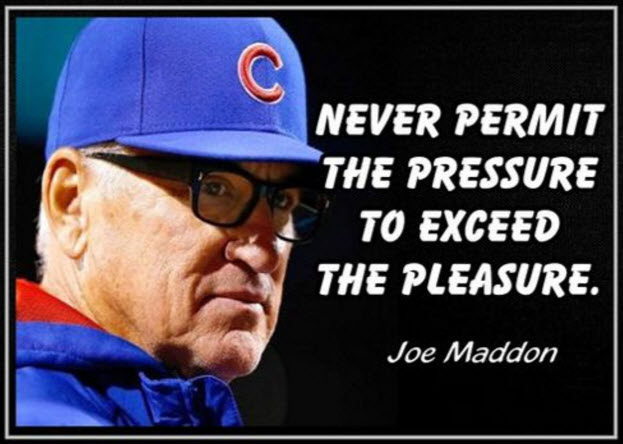Choosing Between Solutions and Emotions

Stuart Wilde in his book, Weight Loss for the Mind, had an insightful thought on adversity when he wrote, “When faced with adversity buy the solution versus the emotion.”
 As I look back I don’t believe I did the above. Initially, I bought the emotion. Mark Twain once wrote that when bad things happen, “Count to ten then swear.” I think I reversed this advice. I swore, then counted to ten and probably swore again! The Irish are prone to act this way.
As I look back I don’t believe I did the above. Initially, I bought the emotion. Mark Twain once wrote that when bad things happen, “Count to ten then swear.” I think I reversed this advice. I swore, then counted to ten and probably swore again! The Irish are prone to act this way.
I wish I had read Wilde’s book while I was still working and concentrated on solutions when adversity came my way. A business man for whom I have great respect told me when someone in his organization angered him, he immediately wrote a letter to him. More often than not his letter had a very angry tone to it. He then tore the letter up and re-wrote it the next day when he had time to rid himself of the emotion and began considering the solution.
There were times when I combined the emotion with the solution and I still believe that combination was a good one. Our university was on Christmas break so the dorms were open. Because I coached basketball and we had games scheduled during the three week break, our players stayed on campus for a good portion of the break.
One morning our maintenance men came to me and said there were beer cans in the hallway where our players were staying. Obviously, my first reaction was anger. The university was allowing us to stay in the dorms so the athletes did not have to drive into practices and we showed our appreciation by littering the dorm with beer cans. I reached my solution as soon as I walked into the dorm and saw all the trash in the hallway.
I immediately knocked on every door, got all of them out of bed, and made them clean the hallway. When they finished their cleaning, I threw all of them out of the dorm for the remainder of the break. I believe this was one incident where the solution could be integrated with the emotion.
This action by our players was definitely not the norm. We prided ourselves on the behavior of our kids on road trips. We wanted their rooms in good order before we left hotels and we would tell them the people who clean the rooms are our people. We generally don’t interact with the hotel owners; we interact primarily with the hotel workers. This was normal behavior of our players. I could not count the times when the hotel people said they hoped we would be returning to their hotel because of the respect our guys showed to all hotel personnel.
We needed to expand our weight room for our current student-athletes in our 14 programs and to show future recruits a much better facility. I was hoping the administration would pay for the expansion. When I presented the need, they agreed but said we had to raise $10,000 if we wanted the work done. So, my first emotion was disappointment. Then our coaches and I developed a golf outing even though we had little to no knowledge of how to initiate it.
Our solution was to bring in people who knew the intricacies of a golf outing and then get to work. Our first year we profited $20,000 and grew that to $50,000 three years later. The golf outing continues to this day and enables the athletic department to better serve the student-athletes.
We initiated football to enhance our enrollment, especially on the male side, because we had been an all-women college. We were members of the NAIA at the national level. Our coach, Gordie Gillespie, initiated the football program with a winning season and we continued to win. Our problem then became scheduling because teams did not want to play us. We were going to lose the sport and lose 80 students if we couldn’t get into a conference.
No NAIA conference was willing to accept us because they knew we had built a successful program in a short period of time. We were called by an NCAA Division II conference who was willing to accept us. This meant our entire program had to abide by both the NAIA and NCAA rules for eligibility. While our other sports could stay with their NAIA schedules, basketball had to play one half of its schedule against DI or DII schools.
As the Athletic Director, I knew we had to do this to retain our 80 male student-athletes. As the basketball coach, my first emotion was fear. We had just come off three 20-plus winning seasons and I feared we could not compete against DII teams. We did end up competing with those schools and the higher level of competition made us stronger in our NAIA conference. The emotion was fear; the solution was just go compete.
When I worked at Providence High School, the diocese made the decision to close our school due to financial concerns. The emotion of the students, faculty, and parents was twofold – anger and deep sadness. The solution was for all constituencies at our school to band together and prove to the diocese that we could make it financially and that we were a very solid school from an academic and extracurricular vantage point. We won the fight because we quickly dropped the emotions and ran with the solution. Providence has an enrollment of 1,100 students today.
Had I read Wilde’s book prior to my retirement, I believe I would have dropped the emotion sooner and bought the solution much more quickly…..Something for leaders to consider.


 What a great World Series! Down 3-1, the Cubs won one at home then went on the road to win the final two games.
What a great World Series! Down 3-1, the Cubs won one at home then went on the road to win the final two games.